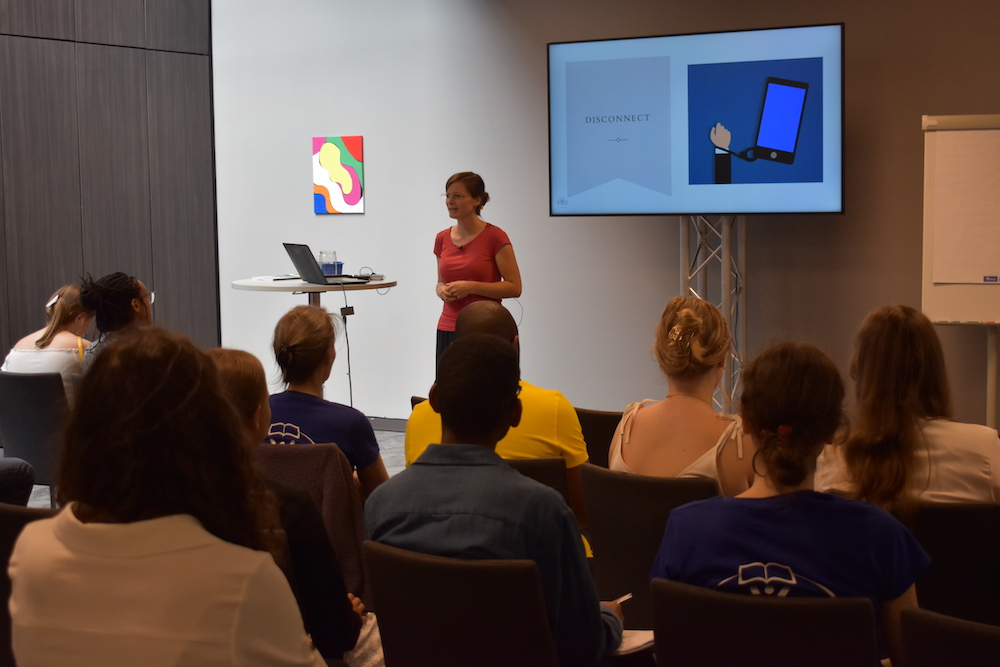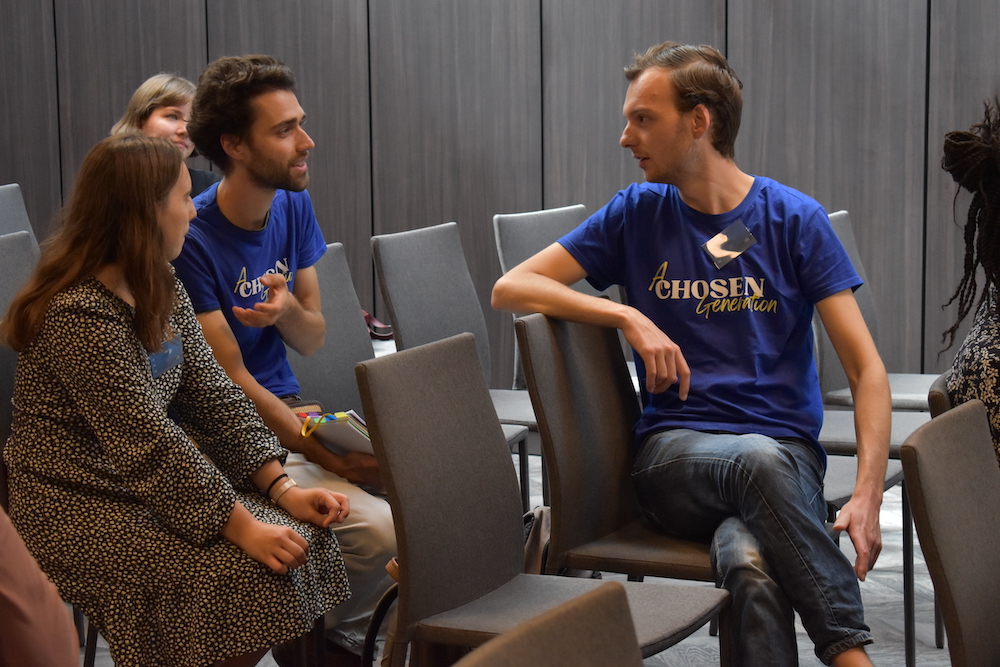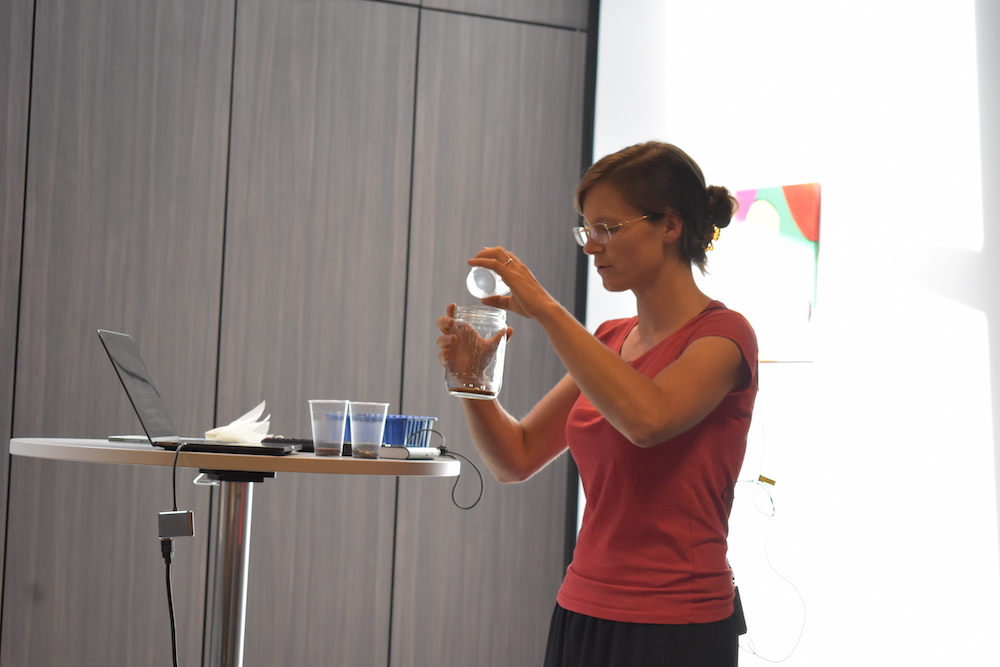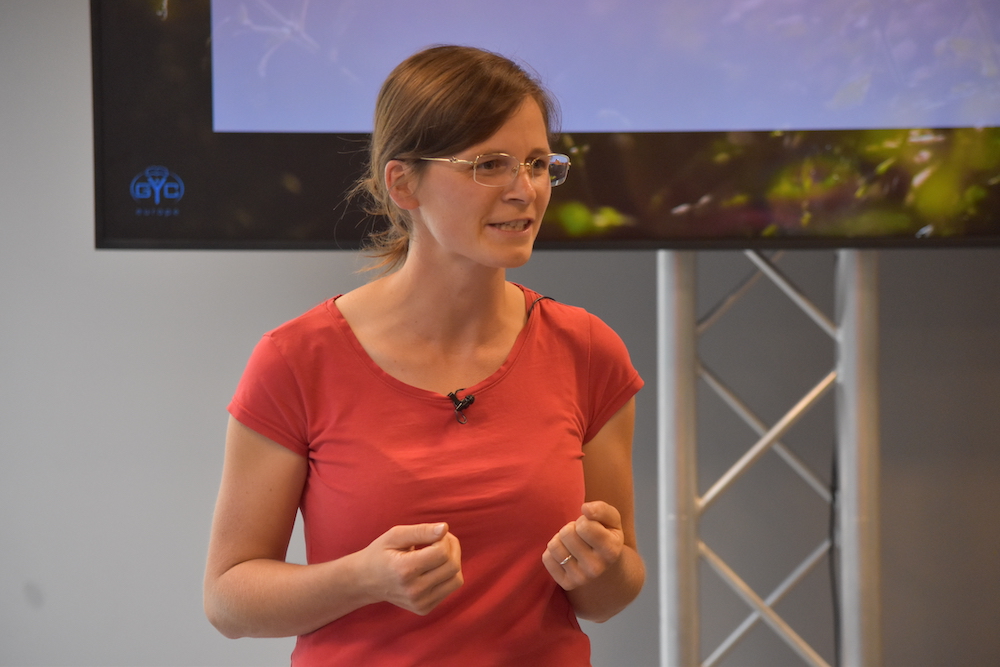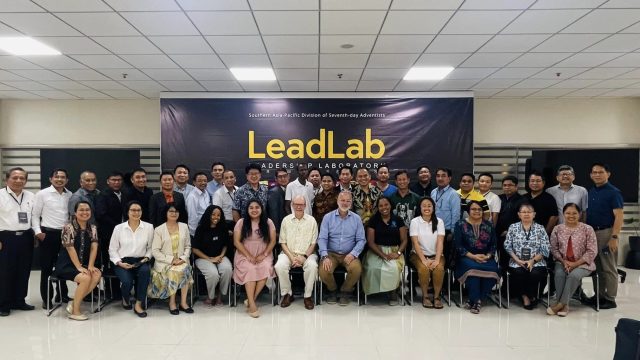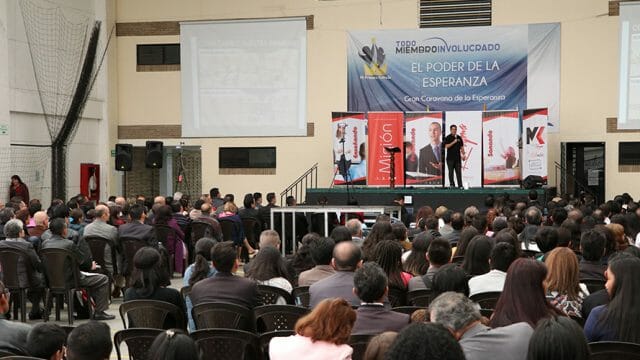At the 2023 GYC Europe convention, a gardener shares ways of doing just that.
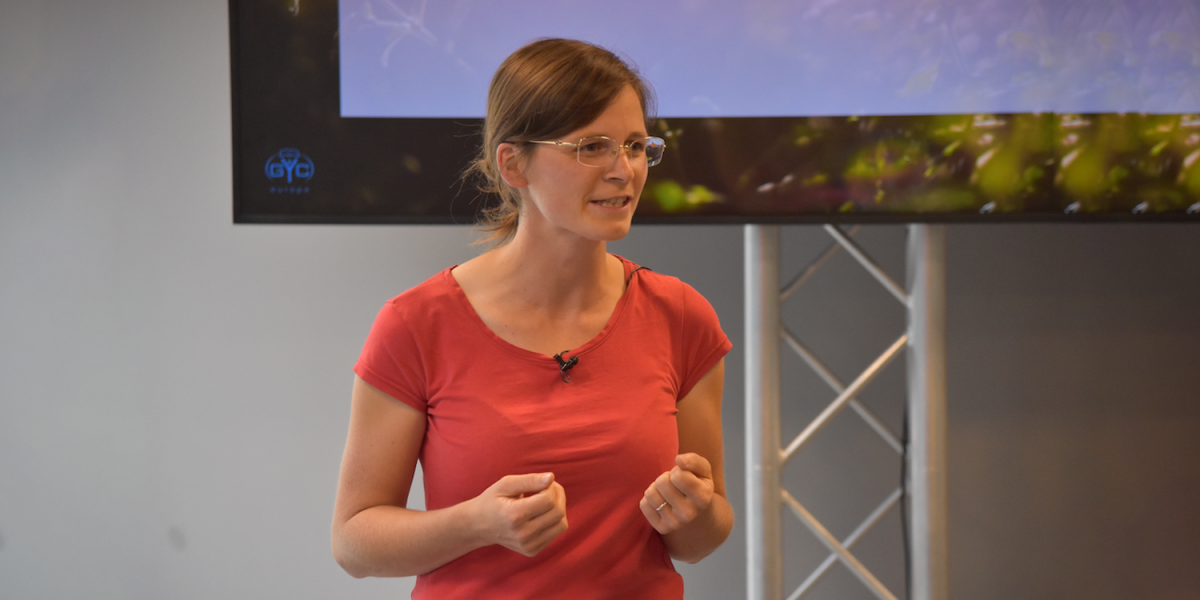
Connecting with nature can help you disconnect from daily cares to be renewed and reconnected with God was the take-home message at one of the workshops during the 2023 Generation. Youth. Christ. (GYC) Europe Convention in Riga, Latvia, August 10.
The workshop, led by Rebecca Wallner, in charge of the parks and gardens at Bogenhofen Seminary in Austria, sought to help young Adventists to reflect on how to better experience a genuine connection with God and other people.
“We live in a very connected world,” Wallner said. “We’re so connected that sometimes it becomes a challenge to disconnect.” In the following moments, she shared why it is important that we disconnect, and how nature and connection to God can be an invaluable asset for our physical, emotional, and spiritual renewal.
Benefits of Nature
Wallner reported that there are many benefits — physical and psychological — of being close to nature and interacting with it. With evidence from scientific research, she shared that nature boosts mood and contributes to happiness, helps one to breathe better (significantly decreasing the risk of dying of respiratory diseases), and improves sleep. Other studies show that spending time walking in nature reduces depression symptoms, helps people to feel less exertion, and boosts immune functions.
Studies show that spending time in nature also brings cognitive benefits. “Nature can act as a balm for our busy brains,” Wallner said. “Just a few moments of green can perk up a tired brain.” Something similar applies to emotional benefits, as a study showed that “contact with nature is associated with increase in happiness … positive social interactions, and a sense of meaning and purpose in life.”1
Regarding mental benefits, some studies show that children who live in neighborhoods with more green space had a reduced risk of many psychiatric disorders later in life, including depression, mood disorders, eating disorders, and substance abuse disorders. Finally, some studies have connected contact with nature with social benefits such as, for instance, being nicer to other people and the planet, Wallner said. In a study, traits such as cooperation and collaboration were enhanced after children participated in a field trip.
Connecting with God
But beyond all the stated benefits, Wallner said, a key question is whether nature can help us to connect with God. Once again, she listed some of nature’s benefits, in this case for our spiritual lives. Among other things, she mentioned that nature is a constant reminder of God as the Creator, and how it is much easier to concentrate in silence. She quoted Adventist Church co-founder Ellen G. White, who wrote, “Nature speaks to our senses without ceasing. The open heart will be impressed with the love and glory of God as revealed through the work of His hands.”2
Beyond that first question, there are others, Wallner said. Is it really necessary to connect with God through nature? If so, how should we do it?
A key element is taking the time to do it. Many “fail to receive the blessing of real communion with God,” she said, quoting Ellen White again, because “they are in too great haste.”3
But if we take the time, Wallner said, still referring to the writing of Ellen White, nature can help us learn about the love and glory of God, about trusting in His care, and lessons about patience and dependence. It can also be a tool to teach others about God’s character, she said.
A Country Lifestyle
Not everyone can live in nature or be surrounded by it, Wallner conceded, but all of us can learn to live a “country lifestyle” no matter where we are. Part of it is renewing our commitment to incorporating the natural remedies in our lives, including drinking pure water, enjoying the sunshine, eating a nutritious diet, and doing physical activities.
For many people, gardening can become an activity that helps them to connect with nature and enjoy its benefits. Many Bible characters worked the land, Wallner reminded the young people, and we should find ways of imitating them within our possibilities.
Wallner advised them to start choosing easy-to-plant options that grow well where they live, and also to consider what they would like to eat. “You don’t need a lot of space or even a plot of land to start a garden,” she said. “You can fill a balcony with plants.” Then, she demonstrated how there are options to start growing sprouts and greens for salads even in an apartment.
The Quiet Hour
In closing, Wallner reminded young attendees that, again according to Ellen White, our closeness to nature will help us transcend our daily cares to connect with what is meaningful and long lasting. “All who are under the training of God need the quiet hour of communion with their own hearts, with nature, and with God,” Wallner read. “And this workshop sought precisely that — to remind you and show you some ways in which to do that.”
Generation. Youth. Christ. (GYC) is a youth-led organization that supports the spiritual mission of the Seventh-day Adventist Church, but is an independent supporting ministry not controlled by or legally affiliated with the church.
___________________________________________________
1. Gregory N. Bratman et al., “Nature and Mental Health: An Ecosystem Service Perspective.” Science Advances 5, no. 7 (2019). DOI: 10.1126/sciadv.aax0903.
2. Ellen G. White, Steps to Christ, 85.
3. Ellen G. White, Education, 260.
4. Ellen G. White, The Ministry of Healing, 58.


